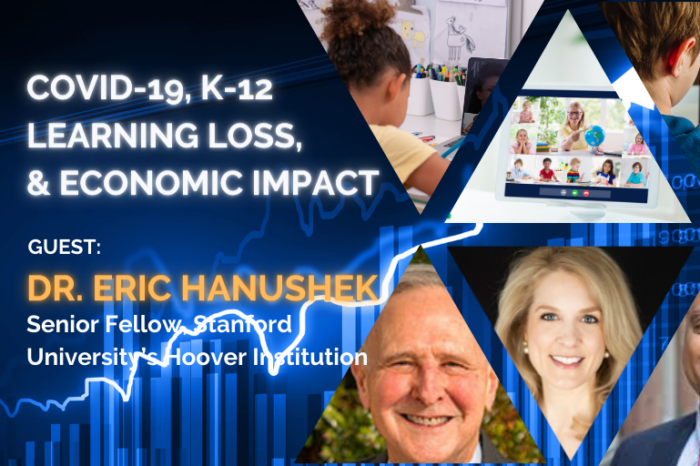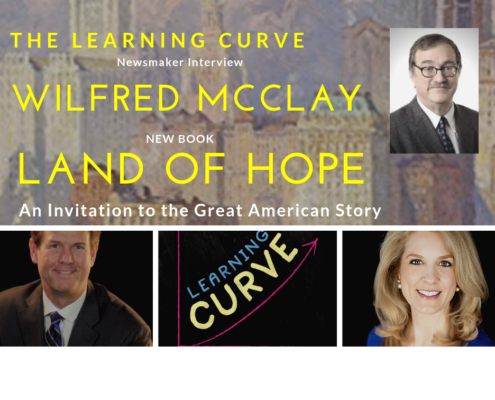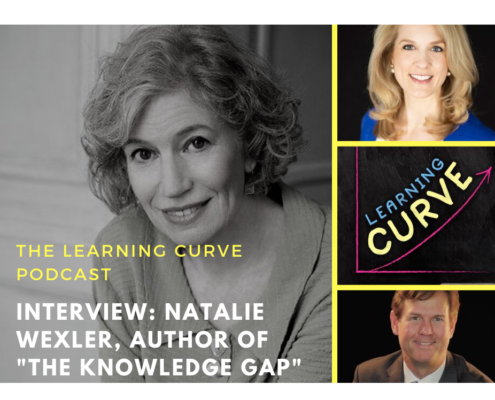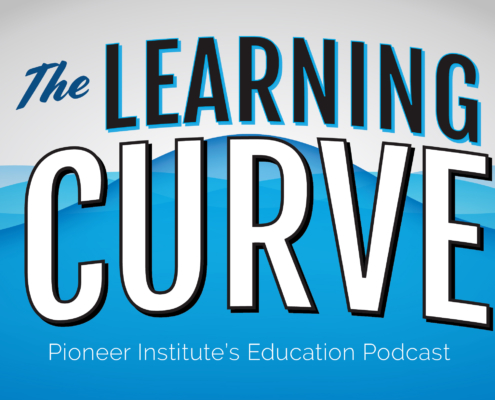Hoover Institution’s Dr. Eric Hanushek on COVID-19, K-12 Learning Loss, & Economic Impact
This week on “The Learning Curve,” Gerard and Cara talk with Dr. Eric Hanushek, the Paul and Jean Hanna Senior Fellow at Stanford University’s Hoover Institution. They discuss his research, cited by The Wall Street Journal, on learning loss due to the pandemic, especially among poor, minority, and rural students, and its impact on skills and earnings. Dr. Hanushek has projected that school closures will result in $25-$30 trillion of lost economic output in today’s dollars over the next century, and a 6-to-9 percent reduction in lifetime household income. He shares with listeners how he arrived at these estimates, their wider financial implications for America’s competitiveness, and how we can address it. They review the realities of K-12 education before COVID-19, with flat and declining NAEP reading and math scores over the last decade and persistent achievement gaps. Given that troubling trend, he recommends more effective use of our teachers’ specific talents and offering more individualized instruction to address variations in student preparation. He offers suggestions for how best to direct the influx of federal stimulus funds to school districts, and thoughts on the relative success of many charter and private schools in pivoting to ensure high-quality remote learning and in-class instruction.
Stories of the Week: School budgets have not suffered nearly as much as predicted due to the pandemic – in fact, some state revenues have even slightly grown thanks to federal relief funds and higher than planned sales tax collections. In Education Next, Christensen Institute cofounder Michael Horn laments school districts’ “timid response” to remote learning, and opportunities to engage students in active learning and other innovative practices.
Guest:
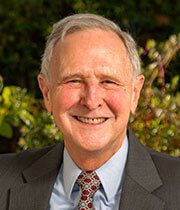
Eric Hanushek is the Paul and Jean Hanna Senior Fellow at the Hoover Institution of Stanford University. He is a recognized leader in the economic analysis of education issues, and his research has had broad influence on education policy in both developed and developing countries. He is the author of numerous widely-cited studies on the effects of class size reduction, school accountability, teacher effectiveness, and other topics. He was the first to research teacher effectiveness by measuring students’ learning gains. This approach formed the conceptual basis for using value-added measures to evaluate teachers and schools, now a widely adopted practice in many countries. His recent book, The Knowledge Capital of Nations: Education and the Economics of Growth summarizes his research establishing the close links between countries’ long-term rates of economic growth and the skill levels of their populations. Ongoing research focuses on international variations in student performance and considers what differences in schooling systems lead to country-differences in the skills of people. He has authored or edited twenty-four books along with over 250 articles. He is a Distinguished Graduate of the United States Air Force Academy and completed his Ph.D. in economics at the Massachusetts Institute of Technology. (http://hanushek.stanford.edu/)
The next episode will air on Wednesday, March 31st, 2021 at 12 pm ET with guest, Dr. Susannah Heschel, the Eli M. Black Distinguished Professor of Jewish Studies at Dartmouth College, and the daughter of noted 20th-century Jewish theologian and Civil Rights era leader, Rabbi Abraham Joshua Heschel.
Tweet of the Week:
???Check out my new book???
Hybrid Homeschooling: A Guide to the Future of Education – EdChoice https://t.co/m5haQqZD79
— Mike McShane (@MQ_McShane) March 15, 2021
News Links:
EducationNext: Michael Horn: Schools Squandered Virtual Learning
https://www.educationnext.org/schools-squandered-virtual-learning-timid-response-lessons-for-future/
Ed Week: School Budgets – Why They’re Not As Bad As Predicted
https://www.edweek.org/policy-politics/school-budgets-why-theyre-not-as-bad-as-predicted/2021/03
Get Updates on Our Education Research
Related Content:

